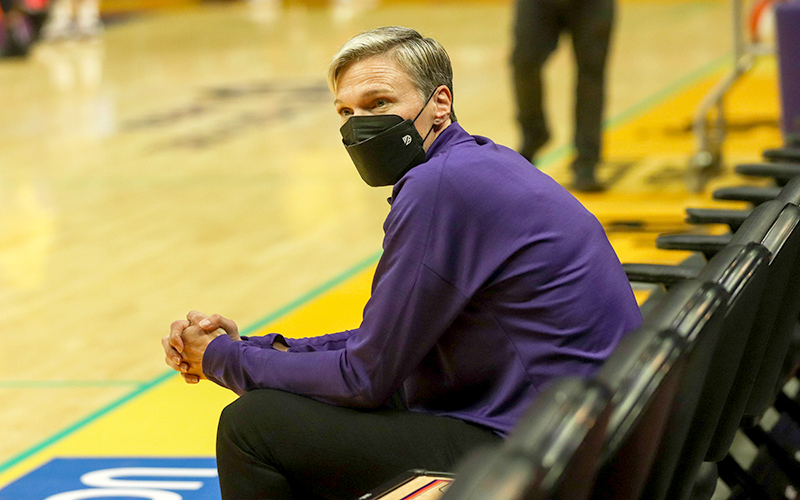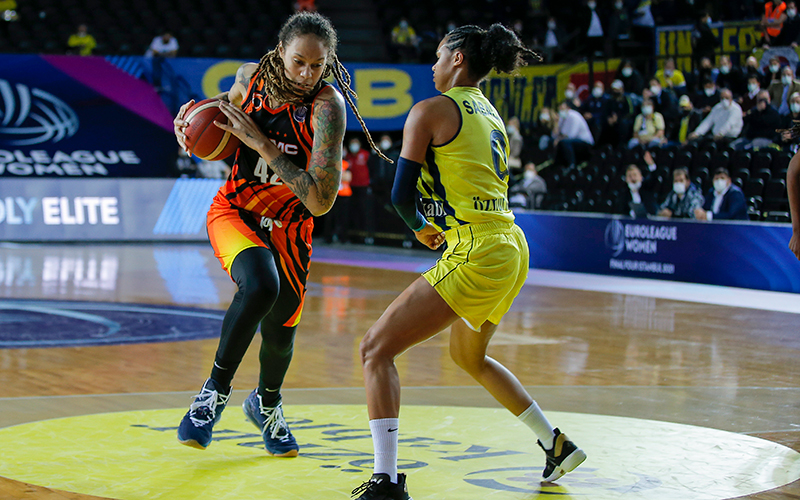PHOENIX – As Vanessa Nygaard walked the Footprint Center court days after being named the Phoenix Mercury’s new coach, she quickly envisioned a championship trophy.
Preseason predictions supported her dream, especially with a superstar trio of Diana Taurasi, Brittney Griner and Skylar Diggins-Smith, and the addition of Tina Charles in free agency.
Then reality hit. Injuries. Lineup changes. And a star player’s imprisonment overseas.
“Every day, there’s something new,” Nygaard said. “There’s been a lot of things that have been going on within our team (and) without our team. It’s about stabilizing the ship.”
After playing six seasons in the WNBA, Nygaard retired in 2003 and longed to be a head coach. When it happened, she believed she had the formula for a championship team: talent, leadership, grit and experience. But data and statistics can’t predict some things.
The Mercury are 6-9 this season, which included a seven-game losing streak, and without Griner, one of top stars in the league.
On Feb. 17, the WNBA All-Star and Mercury center was detained at a Russian airport after vape cartridges containing hashish oil were allegedly found in her luggage. She remains in prison and her detainment has been extended for a third time, at least through July 2.
When Nygaard signed the official offer from the Mercury, she never imagined that in her rookie year she would face adversity unprecedented in WNBA history.
“I don’t think I could be doing any better,” said former Arizona State women’s basketball coach Charli Turner Thorne, who’s been a mentor to Nygaard. “I don’t know any coach that could if (they) were put in that situation.”
“You’ve got a new coach, new coaching staff, a brand new team, and she has yet to have her available roster available,” said Turner Thorne, who was one of the first people to reach out to Nygaard after she took the Mercury job.
Nygaard did not have her entire team for training camp and had to experiment with new veteran players entering the starting lineup, including Diamond DeShields and Charles.
Then, experimentation and adaptation became routine as injuries to Kia Nurse, Charles and Sophie Cunningham impacted team chemistry.
“We all are still getting used to each other, teaching each other,” Diggins-Smith said. “I just got our system down last year, and now we learned a whole new system. So, it just is what it is. So, there’s no excuses on our part. You shouldn’t have to coach effort or energy on us, and I think we have to start that fourth quarter punching somebody in the mouth and not the other way around.”
Turner Thorne compared the challenges faced by a first-year WNBA coach to leading Team USA players.
“You get there, and you have about a week when you coach a USA basketball team,” Turner Thorne said. “Maybe two weeks if you’re lucky to practice and prepare, and then you go play your two or three-week tournaments. You don’t have a lot of time.
“Offensively, you don’t have a lot of time to evaluate your talent. It’s really quick, and you have to continue to evaluate and adjust.”
Turner Thorne believes wins and losses should not be the sole criteria for evaluating a coach.
“Fans should look for improvement,” she said.
Although the team struggled early, it has won four of the past five games.
“We’re always working and trying to get better, make adjustments and do things better,” Nygaard said. “As my (Stanford) coaches say, ‘The hungry lion hunts best.’”
Despite the team’s slow start to the season, the Phoenix Mercury remain in the playoff hunt.



